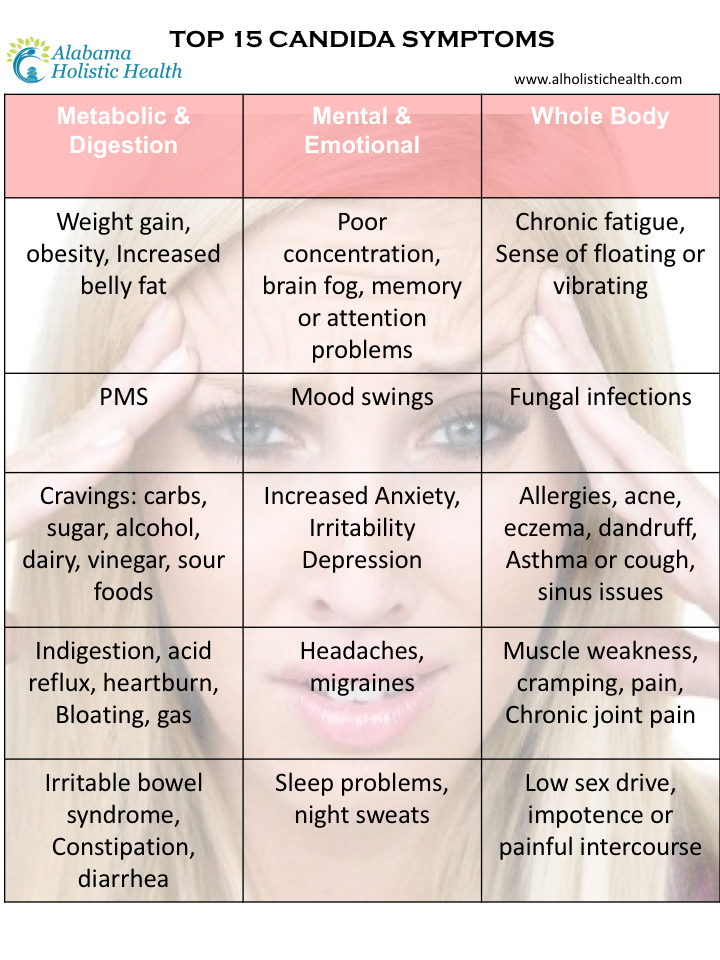
You feel itchy all over, especially, and sometimes embarrassingly, in the anal or vaginal areas. (Candida wants to keep multiplying, so a taste of sugar will leave you wanting more!)Ģ. Despite your best intentions, you have strong cravings for sugar and carbohydrates. What are the symptoms of systemic Candida?ġ. If you’re experiencing autoimmune symptoms, wondering why your thinking has been foggy recently, or trying to figure out troublesome digestive and liver issues, it’s possible that a systemic Candida overgrowth could be the underlying problem.

Candida overgrowth is often overlooked or misdiagnosed because the symptoms vary so greatly. This can lead to a number of symptoms ranging from inflammation and digestive upset, to autoimmune diseases. When the immune system is faced with these unknown invaders, it kicks into overdrive trying to neutralize the threat in any way it can. As the name suggests, leaky gut syndrome causes undigested food, bacteria, and toxins to ‘leak’ from your intestine into your bloodstream.

When Candida grows unchecked, it can permeate into the lining of your intestine leading to ‘leaky gut’ syndrome. How does systemic Candida overgrowth work? When beneficial gut bacteria decrease and yeast multiplies, the overall effect on our bodies can be far-reaching. In contrast, a systemic Candida overgrowth can be much more subtle – although it’s impact may be more troublesome. These reactions are typically immediately noticeable – and very irritating. A vaginal yeast infection causes redness, swelling, and itchiness, and produces an unpleasant white discharge. A Candida infection in the mouth is called oral thrush, and is marked by white, bumpy patches in the mouth and on the tongue, as well as difficulty swallowing. Most people are familiar with the different kinds of yeast infections. Is systemic Candida the same as a yeast infection? Estrogen dominance, birth control pills and stress can all multiply the amount of yeast in our systems. For example, we can lose beneficial bacteria after taking a round of antibiotics, or power Candida’s growth by bingeing on sugar or alcohol. This delicate balance is, however, easily disturbed. When circumstances are ideal, our gut bacteria keeps intestinal yeast growth in check, creating a harmonious balance between bacteria and yeast. However, as anyone who’s ever baked bread knows, yeast likes to grow (it is a fungus, after all). Under optimal conditions, Candida plays a valuable role in our digestive systems, since we need small amounts of candida in our mouths and throughout our digestive system in order to fully digest our food. What is Candida Albicans?Ĭandida albicans is the most common kind of yeast that co-exists with humans.

CANDIDA YEAST OVERGROWTH SKIN
White coating on your tongue? Foggy feeling in your head? Mysterious skin rashes? Bloating and irregular digestive function? Always needing to eat something sweet? You could be suffering from yeast overgrowth. Candida: are you or your child experiencing yeast overgrowth?


 0 kommentar(er)
0 kommentar(er)
